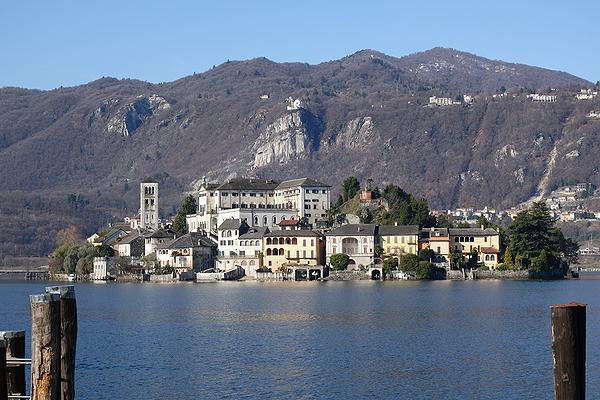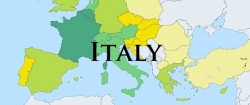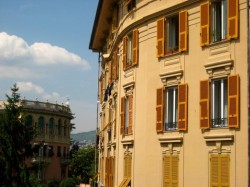ITALY CHRONICLES
Latest Posts

New! Italy Photo Contests – Show Off Your Photos of Italy
If you, like me, you think Italy is extremely photogenic, you might be interested to hear that Italy Chronicles is to run photo contests. The
Italian Politics – Still a Mess
Here’s a roundup stroke overview of what’s going on in the decidedly odd world of Italian politics. Broadly, there are three political factions in Italy,
Wild Boar Hunting in Italy
Ever thought about wild boar hunting in Italy? Maybe not but perhaps you might like to. Italy has a bit of a problem with wild
Berlusconi Heart
On Thursday in Italy headlines were dominated by the news that Silvio Berlusconi, a former and controversial prime minister, required an urgent heart operation and had
Money People – The World’s Biggest Problem
What’s that old saying? Ah yes, “money is the root of all evil”. From what is happening in Italy and elsewhere around the world, there
Italian Politics – Still a Mess
Here’s a roundup stroke overview of what’s going on in
Wild Boar Hunting in Italy
Ever thought about wild boar hunting in Italy? Maybe not
Berlusconi Heart
On Thursday in Italy headlines were dominated by the news
Money People – The World’s Biggest Problem
What’s that old saying? Ah yes, “money is the root
Italy
Earthquake Hits Macerata Area of Italy
UPDATE: 30 October, 2016 – Another strong earthquake, magnitude of on 6.5 Mw scale, hit the same area today. Aftershocks, some over 4.o (ML –

Of Nubile Neutrinos and Tunnels
You may have read recently that tiny weeny little particles called neutrinos are suspected of travelling faster than light. One of the laboratories which is

Italy’s Venice to Turin Cycle Motorway
There’s a proposal in Italy to create a kind of motorway for cyclists from Venice to Turin, only the VenTo project may not get all
Italy’s Politicians Try to Ban Blogs, again
Back in 2007 in the time of the supposedly more democratic Prodi government, Italy’s shady politicians tried to gag Italy’s vociferous bloggers. Well, this time Berlusconi and his cronies are having a go at gagging Italy’s bloggers.

Who Are Italy’s New Ministers? Mini-profiles here
Along with pithy profiles, here is a list of the ministers selected to serve as part of neo-prime minister Enrico Letta’s new multiple political spectrum

First blog
Introductory ramblings Well, I’ve been in Italy for quite a while now. It’s almost ten years since I decided to try a different life and
Brindisi School Bomb Tragedy
Today a bomb went off outside a high school in
Is Life in Italy So bad?
At the end of the day, despite bickering politicians and dodgy organisation, life in Italy is not that bad.
Properties
House For Sale near Milan
Gaetano Salvo, friend and Blog from Italy researcher wants to sell his house. For those who might be interested, or may know of someone or

The Admirable Admiral’s Villa in Taormina
If you know your history pretty well, you may be aware that one of England’s most celebrated Admirals possessed a rather charming villa in the scenic Sicilian town of Taormina.

How to Find Property for Rent in Italy
Maybe you are coming to Italy to work or study here for a while, in which case, you’ll need somewhere to live. If that’s the

The Admirable Admiral’s Villa in Taormina
If you know your history pretty well, you may be aware that one of England’s most celebrated Admirals possessed a rather charming villa in the scenic Sicilian town of Taormina.
House For Sale near Milan
Gaetano Salvo, friend and Blog from Italy researcher wants to sell his house. For those who might be interested, or may know of someone or
Places to stay in Italy
Villa Miller Bed and Breakfast, Puglia, Italy
Located well off the main road in the depths of the Puglia countryside, Villa Miller the only sounds which disturb guests are those of the crickets and the ringing of the bells worn by the areas cow and sheep population.
Chaplin Bed and Breakfast Rome
Perfectly located in a safe and quiet but extremely central Rome neighborhood, the Chaplin Bed and Breakfast Rome is the ideal base for your Roman holiday.
Casa Villatalla B&B, Liguria
By far the most important members of the Casa Villatalla household are Nellie (an elderly but loveable chocolate Labrador), Bonnie, a fluffy and rather scatty American Spaniel, and Pickle, aneccentric cat who walks like John Wayne.
Casa Villatalla B&B, Liguria
By far the most important members of the Casa Villatalla household are Nellie (an elderly but loveable chocolate Labrador), Bonnie, a fluffy and rather scatty American Spaniel, and Pickle, aneccentric cat who walks like John Wayne.
Villa Miller Bed and Breakfast, Puglia, Italy
Located well off the main road in the depths of the Puglia countryside, Villa Miller the only sounds which disturb guests are those of the crickets and the ringing of the bells worn by the areas cow and sheep population.

